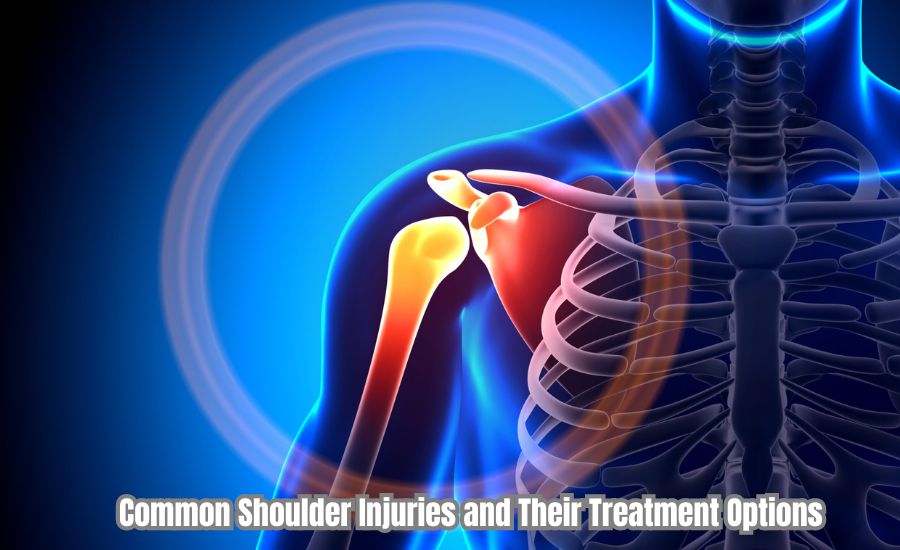Having a sudden impact injury on your shoulder, such as a fall, knock, or traffic collision, are painful and inconvenient. Injuries could also happen due to wear and tear or overuse from physical labor, weightlifting, and sports. Depending on the injury, your orthopedic surgeon can recommend something simple like rest, immobilization, and compression or something more intense like physical therapy, medication, or surgery. Here’s a look at some commonly reported shoulder injuries and their treatment options:
Rotator Cuff Tears
Your rotator cuff is made up of various muscles and tendons that surround the shoulder joint. The muscles and tendons can get injured from trauma, overuse, or degradation caused by aging. A rotator cuff tear can be partial or complete and is a fairly common shoulder injuries among athletes. Symptoms include pain, muscle weakness, and reduced range of motion. Treatment includes rest and ice to reduce pain and swelling. Doing physical therapy will strengthen the muscles. Your doctor can prescribe anti-inflammatory drugs and corticosteroid injections to relieve the pain and inflammation. If the tear is severe or doesn’t respond to other treatments, the orthopedic surgeon might recommend surgery.
Shoulder Impingement
A shoulder impingement occurs when a tendon in your rotator cuff is compressed or pinched. The compressed tendon rubs on your shoulder blade, causing pain, inflammation, and stiffness. Also known as the swimmer’s shoulder, impingement syndrome is caused by repetitive overhead movements. Treatment includes rest, avoiding activities that aggravate the shoulder, and physical therapy to strengthen shoulder muscles. Anti-inflammation and pain medication are provided to relieve the pain and swelling. A professional may recommend surgery to remove bone spurs and correct structural issues.
Bursitis and Tendonitis
The bursa is a fluid-filled sac that reduces friction between the moving bones in your shoulder joint. Bursitis occurs when the bursa becomes inflamed, resulting in pain and tenderness around your shoulder. Tendonitis also causes pain and tenderness because tendons that attach shoulder muscles to bones get irritated or inflamed. Both bursitis and tendonitis are caused by overuse or trauma. Treatment options include rest and ice compression to reduce inflammation. NSAIDs and physical therapy can help relieve pain and stiffness. Surgery is rarely required and only suggested if other treatments fail.
Clavicle and Humerus Fractures
All three bones in your shoulder—the clavicle, humerus, and scapula—are susceptible to fractures These bones can break due to injury or after wear and tear. Shoulder fractures could cause intense pain, swelling, and bruising. Some cases also result in the inability to move your arm. Treatment for fractures includes immobilization using slings and braces to allow healing. Pain management is achieved through NSAIDs, and physical therapy is used to increase your range of motion after healing. Severe fractures and bone displacement usually require surgical intervention.
Get Treatment for Shoulder Injuries Today
Early treatment can prevent further damage to an injured shoulder. Seek a professional diagnosis if you experience shoulder pain or other symptoms that persist for more than a few days. Whether you have a dislocated upper arm bone, frozen shoulder, or labral tear, work with an experienced orthopedic surgeon. Contact an upper extremity specialist today to find out more about shoulder injuries and their treatment options.
Stay Connected With: Tell A Loved One Is Experiencing Anxiety


